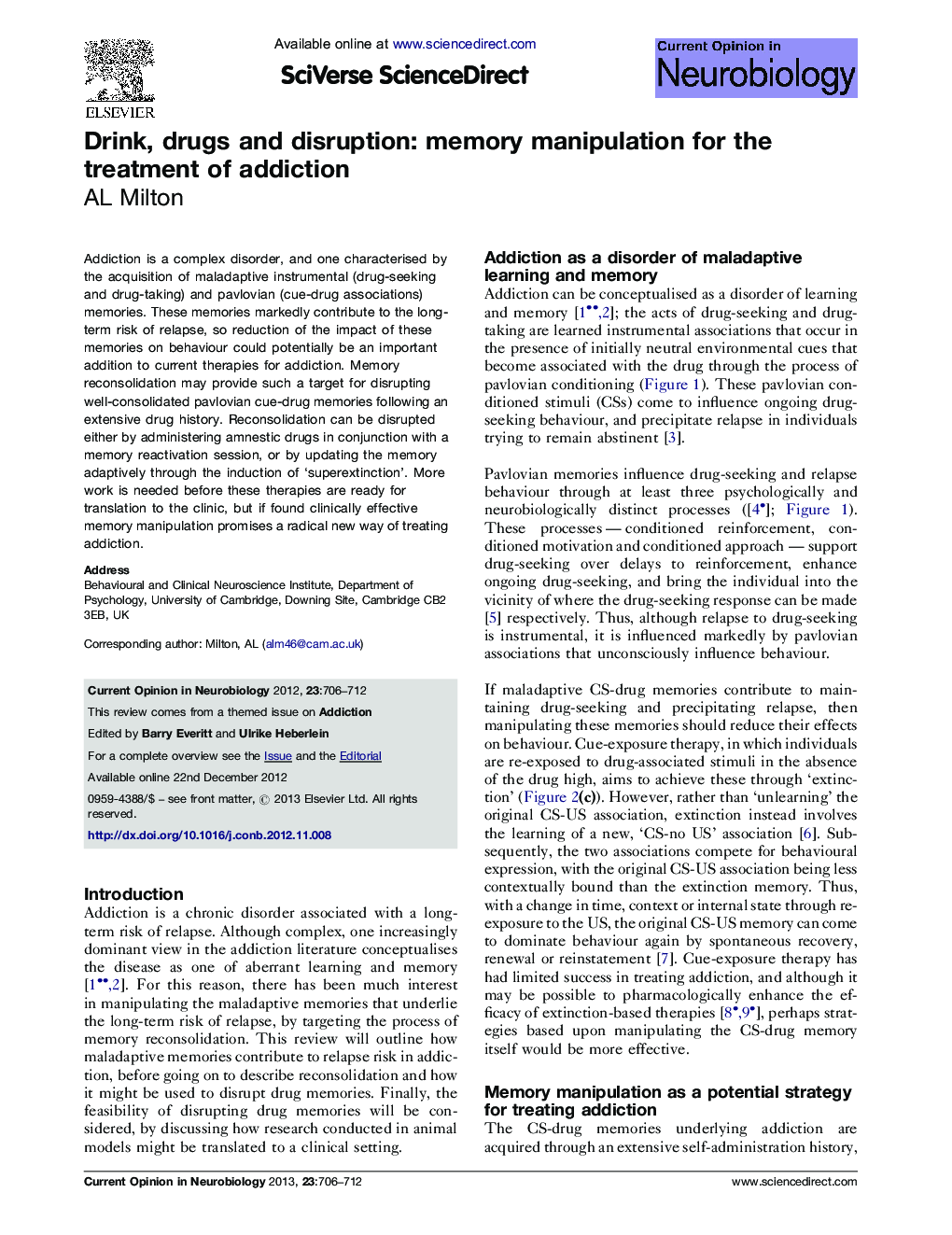| Article ID | Journal | Published Year | Pages | File Type |
|---|---|---|---|---|
| 6267150 | Current Opinion in Neurobiology | 2013 | 7 Pages |
Addiction is a complex disorder, and one characterised by the acquisition of maladaptive instrumental (drug-seeking and drug-taking) and pavlovian (cue-drug associations) memories. These memories markedly contribute to the long-term risk of relapse, so reduction of the impact of these memories on behaviour could potentially be an important addition to current therapies for addiction. Memory reconsolidation may provide such a target for disrupting well-consolidated pavlovian cue-drug memories following an extensive drug history. Reconsolidation can be disrupted either by administering amnestic drugs in conjunction with a memory reactivation session, or by updating the memory adaptively through the induction of 'superextinction'. More work is needed before these therapies are ready for translation to the clinic, but if found clinically effective memory manipulation promises a radical new way of treating addiction.
⺠Addiction can be conceptualised as a disorder of maladaptive learning. ⺠Maladaptive memories promote drug-seeking and precipitate relapse. ⺠Reconsolidation is the process by which memories are updated and persist. ⺠Reconsolidation provides a target for disrupting maladaptive memories. ⺠Disruption could be achieved through pharmacological and/or behavioural therapies.
